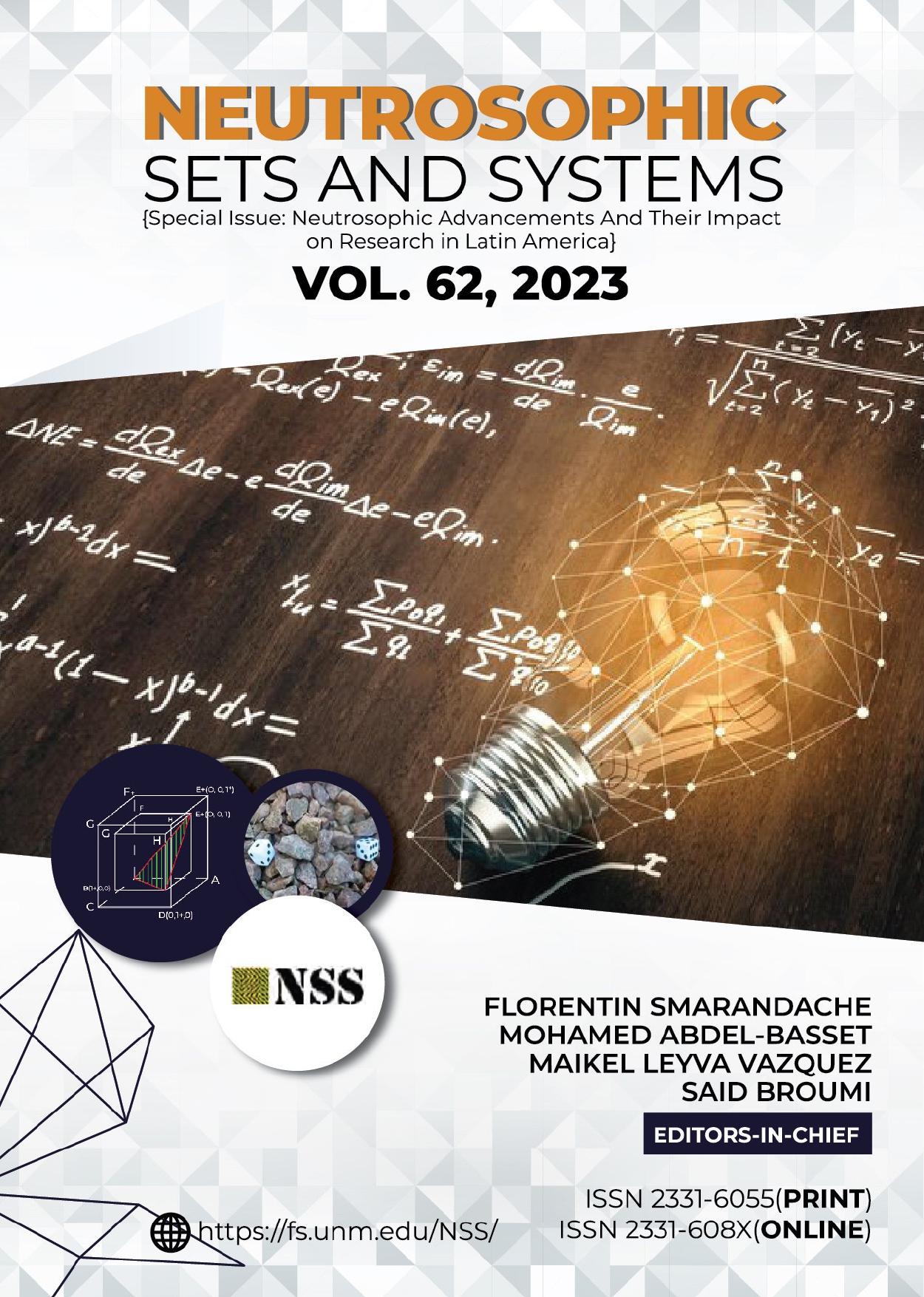Neutrosophic Perspectives in Healthcare Decision Making: Navigating Complexity with Ethics, Information, and Collaboration
Keywords:
Neutrosophic correlation coefficients, COPRAS method, medical care, clinical decisions, ethicsAbstract
Decision-making in healthcare is a multifaceted process that involves multiple actors and factors. It is a crucial
process that directly influences the quality of care provided to patients. To make appropriate clinical decisions, it is essential
to have accurate clinical information, including medical histories and test results, in addition to considering ethical principles.
Interdisciplinary consultation, proper documentation, and institutional policies play a vital role in ethical and clinical decision
making, especially in complex situations. Research utilizes methods such as COPRAS and neutrosophic correlation coefficients
to guide decision-making in complex situations, but it is emphasized that results may vary depending on the method used and
the subjectivity of experts. The results highlight the importance of ethical principles in clinical decision-making, including
doing good, avoiding harm, treating all patients fairly, and respecting patient autonomy. The combination of clinical infor
mation, ethical principles, and active participation of patients and their families is essential for making informed and ethical
decisions that promote the health and well-being of patients.
Downloads
Downloads
Published
Issue
Section
License
Copyright (c) 2023 Neutrosophic Sets and Systems

This work is licensed under a Creative Commons Attribution-NonCommercial-ShareAlike 4.0 International License.



